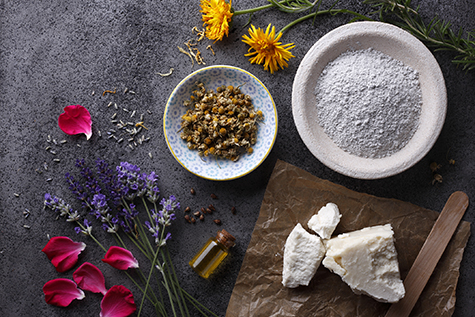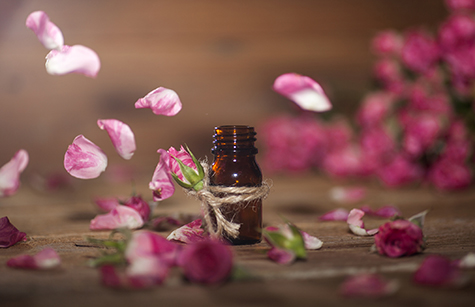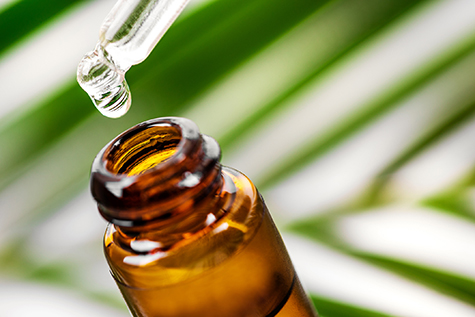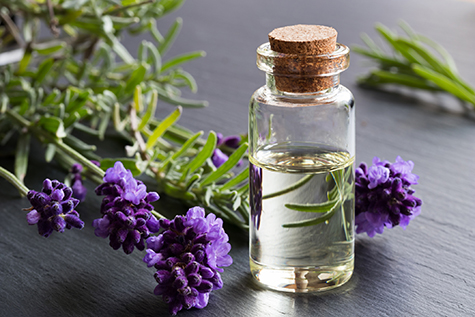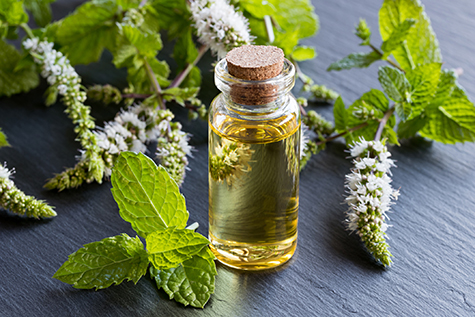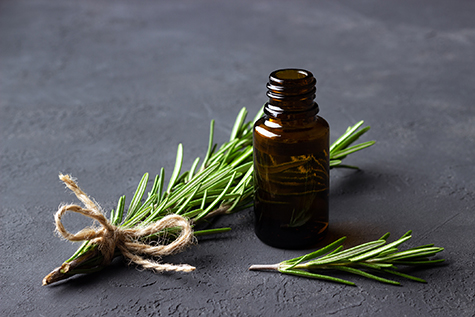Top 5 Essential Oils for Your Skin

Your skin is a hugely important part of your health. The largest organ in the body, it protects us in so many ways. Paying attention to skin health is critical to your overall wellness. If you struggle with skin that is itchy, irritated, or acne-prone, you’ve probably tried a number of commercial and prescription products, but have you tried essential oils? Research continues to emerge about how essential oils can help treat skin concerns, helping you achieve clear and healthy skin.
Essential oils will work best at giving you happy skin if you practice other healthy behaviors. These include:
- Regular exercise
- Sufficient and quality sleep
- Stress management
- Eating a balanced diet of fruits, vegetables, protein, and complex carbohydrates
- Moderate (not excessive) alcohol consumption
- Staying hydrated by drinking enough water
One you have the foundation of these healthy practices down, adding in some specific essential oils can help give your skin that extra boost it needs to be your most radiant self. Read on for the Foodtrients® top 5 essential oils for your skin.
1. Rose
A classic floral scent, rose oil is the ultimate fragrant essential oil to add to homemade face oil or lotion blends. Rose essential oil also has anxiety and pain reducing properties, as well as antibacterial effects. This makes it perfect for inflamed or irritated skin that needs soothing. True rose essential oil is very expensive (think of all the rose petals it would take to extract enough essential oil for even a small bottle!) and volatile, so you will most often find this as a rose oil blended with another neutral carrier oil like jojoba or grapeseed oil. The good news is, these are hydrating products for your skin.
2. Tea Tree
This is one of the most popular essential oils available and for good reason. Tea tree oil has well studied antibacterial and antiviral effects, making it a good option for a natural ingredient in a salve for minor wounds. Make sure to properly wash any cuts and scrapes before applying and always dilute the essential oil with a carrier oil like jojoba or coconut oil so it doesn’t become an irritant to the skin. Tea tree oil’s antibacterial effects also make it effective at treating acne, with research showing that it is comparable to a conventional acne treatment chemical (benzoyl peroxide) at 5% concentrations. While tea tree oil might be good for acne or cuts on your skin, keep this one away from your pets’ skin. Tea tree oil is toxic for dogs and cats.
3. Lavender
With some significant research backing it for its calming, sleep promoting, relaxing, and anxiety decreasing effects, lavender can support the skin, too. Lavender oil has been shown to speed wound healing and even promote hair growth in some studies. This combination of effects means it could be a featured component in your minor cuts and scrapes salve to sooth the skin. Bonus points for using lavender on your skin: as you massage the oil in, you can inhale the scent for anxiety and stress reducing benefits, which on their own can help to improve your health.
4. Peppermint
Besides its bright and minty scent, peppermint oil has been shown to be an effective treatment for chronically itchy skin (chronic pruritus). Massaging this oil on your skin can also help relieve sore muscles and joints. As with lavender, inhaling peppermint oil as you massage it onto your skin can help reduce anxiety and energize you. Use it in the morning and or afternoon for a burst of energy. Just be sure not to diffuse this one around your pets to keep them safe from this strong oil.
5. Rosemary
This woody herb is helpful for more than just seasoning your vegetables. Rosemary essential oil blocks the growth of bacteria and yeast in lab settings. It is also used to treat male-pattern balding by preventing a testosterone byproduct from binding to androgen receptors in the hair follicles. This oil can also help stimulate hair growth in alopecia areata (bald patches resulting from auto-immune attacks on the hair follicles). One study found that this oil was as effective as a conventional medicine for androgenic alopecia (also known as male pattern baldness), plus the rosemary oil treatment came with less scalp itching than the conventional treatment!
Have you used any essential oils to help support healthy skin?
Let us know about your experience in the comments!
References:
Shohayeb M, Abdel-Hameed ESS, Bazaid SA, Maghrabi I. Antibacterial and antifungal activity of Rosa damascena MILL. essential oil, different extracts of rose petals. Glob J Pharmacol. 2014;8(1):1-7.
Bassett IB, Pannowitz DL, Barnetson RSC. A comparative study of tea-tree oil versus benzoylperoxide in the treatment of acne. Med J Aust. 1990;153(8):455-458.
Ben Djemaa FG, Bellassoued K, Zouari S, El Feki A, Ammar E. Antioxidant and wound healing activity of Lavandula aspic L. ointment. J Tissue Viability. 2016;25(4):193-200.
Elsaie LT, El Mohsen AM, Ibrahim IM, Mohey-Eddin MH, Elsaie ML. Effectiveness of topical peppermint oil on symptomatic treatment of chronic pruritus. Clin Cosmet Investig Dermatol. 2016;9:333-338.
Panahi Y, Taghizadeh M, Marzony ET, Sahebkar A. Rosemary oil vs minoxidil 2% for the treatment of androgenetic alopecia: A randomized comparative trial. Skinmed. 2015;13(1):15-21.
